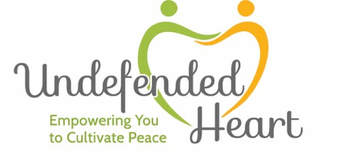WORKPLACE
Where will the heart be?"
- Coach Mike Krzyzewski, Duke University (Legendary College and US Olympic Basketball Coach)
Where's the heart in your organization?
Whether or not you're a fan of the Duke basketball program or if you've ever watched Team USA, few can argue with Coach Mike Krzyzewski's winning record (1000+ men's college basketball wins, the most of any coach in the history of the sport; led the men's US National Basketball team to 2 Olympic gold medals in 2008 and 2012). Is your organizational team winning by moving forward in a direction that serves the heart of your organization, or are team members' interpersonal and intrapersonal dynamics thwarting your organization from achieving your aims and operating at maximum efficiency?
The Cost of Stress and The Cost of Distractions
Stress has been called the “health epidemic of the 21st century” by the World Health Organization and it's estimated that stress costs companies $300 billion a year, due to absenteeism, employee turnover, employee disability and reductions in productivity, according to the American Psychological Association. Distractions also cost companies considerably. According to research from Workplace Options, an estimated $650 billion a year is lost by US businesses as a result of workplace distractions, including hand held devices, office gossip and web surfing. 53% of employees indicate that distractions directly affect their productivity and 66% of workers state they find it hard to focus on work tasks because of stress.
(Sources: http://www.cfodailynews.com/the-cash-drain-thats-costing-firms-650-billion-per-year/ and http://quickbooks.intuit.com/r/employees/the-hidden-costs-of-workplace-stress/ and http://www.businessnewsdaily.com/2267-workplace-stress-health-epidemic-perventable-employee-assistance-programs.html)
Addressing Employees' Well-Being Pays Big Dividends
Workers that experience high well-being have health-related costs that are 41% lower than workers with reductions in well-being. Companies that increase employees' well-being experience "more than twice the earnings per share and more than twice the rate of stock appreciation as compared to the average Standard & Poor's 500 company" according to Robert Levering's book, "The 100 Best Companies to Work for in America." As the effects of the Great Recession recede and employment opportunities increase, workplaces that are less stressful will be more appealing and thus will support the retention of valued employees.
(Sources: http://www.corporatewellnessmagazine.com/worksite-wellness/workplace-stress-strains-organizations-bottom-lines/ and http://www.gallup.com/businessjournal/154643/unhealthy-stressed-employees-hurting-business.aspx)
Our Attention Training Programs Decrease Stress & Increase Well-Being
At Undefended Heart, we invite you to consider how you're paying attention. How you pay attention has a major impact on whether you experience unrelenting stress or well-being.
Most people attend with a narrow, objective focus, researcher and clinician Les Fehmi, PhD refers to as an "emergency mode" of paying attention. In our programs, we'll introduce you to a flexible style of attending that will allow you to effortlessly create and sustain shifts toward openness that activate the parasympathetic nervous system and encourage synchronous alpha brain waves: alert but relaxed brain functioning that optimizes functioning.
We look forward to creating your organization's program.
- Coach Mike Krzyzewski, Duke University (Legendary College and US Olympic Basketball Coach)
Where's the heart in your organization?
Whether or not you're a fan of the Duke basketball program or if you've ever watched Team USA, few can argue with Coach Mike Krzyzewski's winning record (1000+ men's college basketball wins, the most of any coach in the history of the sport; led the men's US National Basketball team to 2 Olympic gold medals in 2008 and 2012). Is your organizational team winning by moving forward in a direction that serves the heart of your organization, or are team members' interpersonal and intrapersonal dynamics thwarting your organization from achieving your aims and operating at maximum efficiency?
The Cost of Stress and The Cost of Distractions
Stress has been called the “health epidemic of the 21st century” by the World Health Organization and it's estimated that stress costs companies $300 billion a year, due to absenteeism, employee turnover, employee disability and reductions in productivity, according to the American Psychological Association. Distractions also cost companies considerably. According to research from Workplace Options, an estimated $650 billion a year is lost by US businesses as a result of workplace distractions, including hand held devices, office gossip and web surfing. 53% of employees indicate that distractions directly affect their productivity and 66% of workers state they find it hard to focus on work tasks because of stress.
(Sources: http://www.cfodailynews.com/the-cash-drain-thats-costing-firms-650-billion-per-year/ and http://quickbooks.intuit.com/r/employees/the-hidden-costs-of-workplace-stress/ and http://www.businessnewsdaily.com/2267-workplace-stress-health-epidemic-perventable-employee-assistance-programs.html)
Addressing Employees' Well-Being Pays Big Dividends
Workers that experience high well-being have health-related costs that are 41% lower than workers with reductions in well-being. Companies that increase employees' well-being experience "more than twice the earnings per share and more than twice the rate of stock appreciation as compared to the average Standard & Poor's 500 company" according to Robert Levering's book, "The 100 Best Companies to Work for in America." As the effects of the Great Recession recede and employment opportunities increase, workplaces that are less stressful will be more appealing and thus will support the retention of valued employees.
(Sources: http://www.corporatewellnessmagazine.com/worksite-wellness/workplace-stress-strains-organizations-bottom-lines/ and http://www.gallup.com/businessjournal/154643/unhealthy-stressed-employees-hurting-business.aspx)
Our Attention Training Programs Decrease Stress & Increase Well-Being
At Undefended Heart, we invite you to consider how you're paying attention. How you pay attention has a major impact on whether you experience unrelenting stress or well-being.
Most people attend with a narrow, objective focus, researcher and clinician Les Fehmi, PhD refers to as an "emergency mode" of paying attention. In our programs, we'll introduce you to a flexible style of attending that will allow you to effortlessly create and sustain shifts toward openness that activate the parasympathetic nervous system and encourage synchronous alpha brain waves: alert but relaxed brain functioning that optimizes functioning.
We look forward to creating your organization's program.
© Barbara Veale Smith 2016. All rights reserved.


